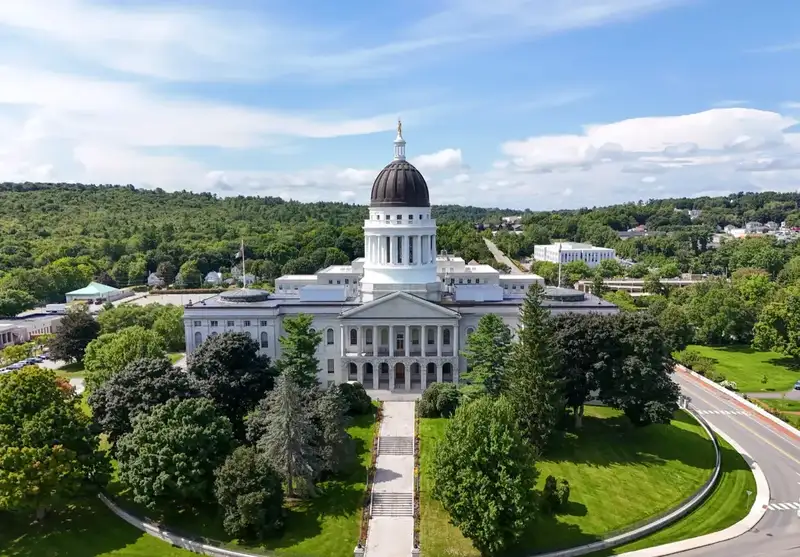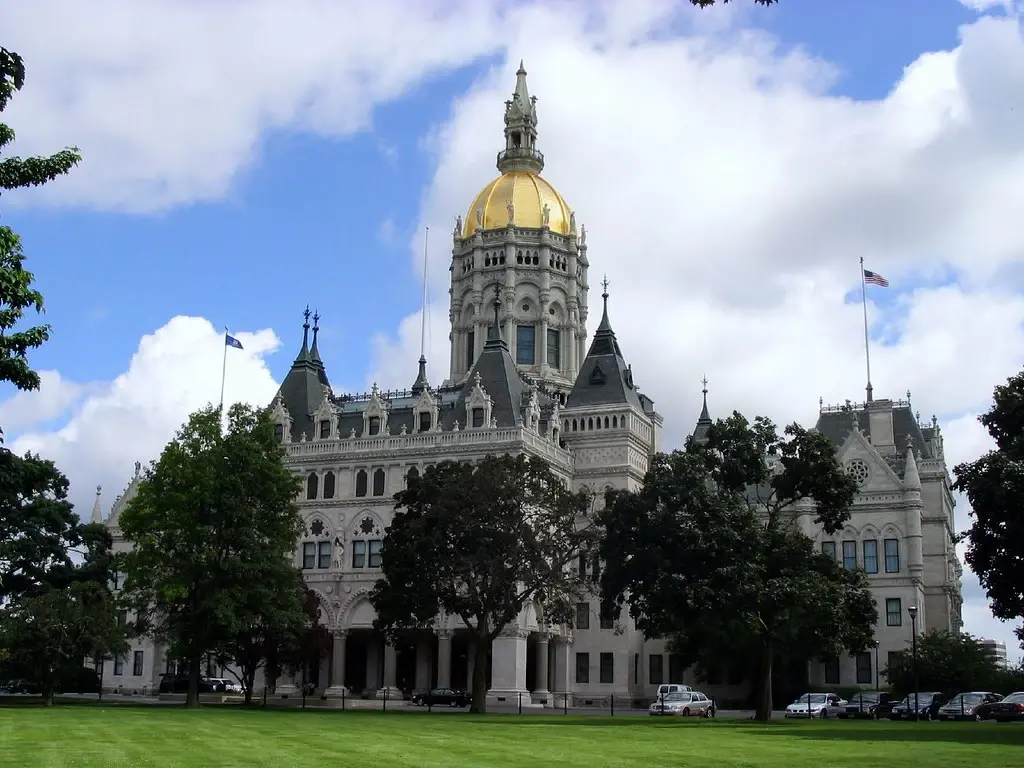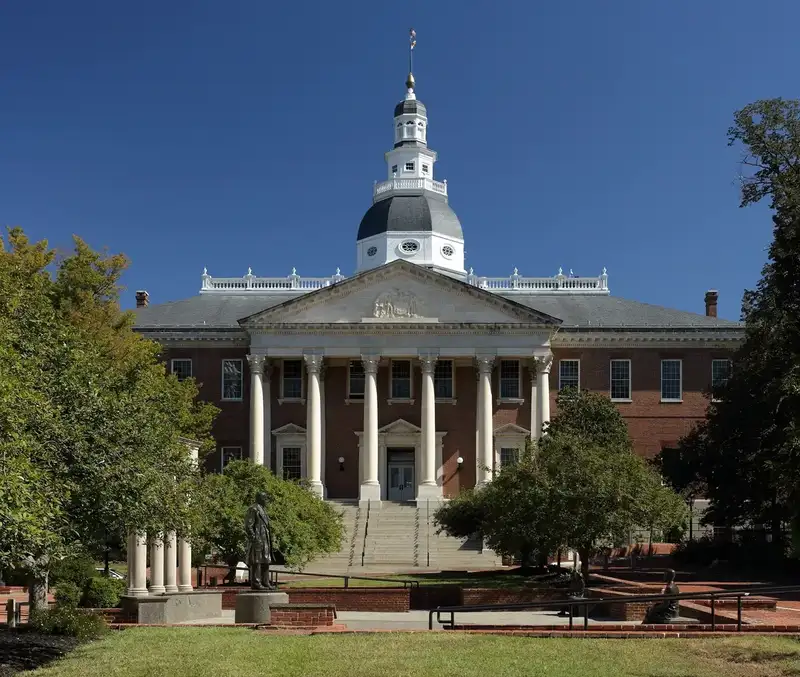Maine NARR State Affiliate (MARR) | Complete Guide
Maine Association of Recovery Residences (MARR) - Maine's NARR affiliate for recovery housing certification. Requirements, levels, benefits, and how to get certified.

Introduction: What is MARR?
The Maine Association of Recovery Residences (MARR) is the official state affiliate of the National Alliance for Recovery Residences (NARR) in Maine. As a 501(c)(3) nonprofit organization established in 2016, MARR is dedicated to ensuring that recovery residences throughout Maine provide safe, ethical, and supportive environments for individuals in recovery from substance use disorders.
MARR manages the certification process for recovery residences across the state, helping operators meet nationally recognized standards while providing individuals seeking recovery housing with confidence that certified homes meet rigorous quality requirements.
About the Maine Association of Recovery Residences
Mission Statement
MARR’s mission centers on promoting ethical and sustainable management of high-quality recovery residences across Maine. The organization works to ensure that people in recovery have access to safe, supportive housing options that foster long-term sobriety.
History
MARR was founded in 2016 to address the growing need for standardized recovery housing in Maine. As substance use disorders and the opioid crisis impacted communities throughout the state, MARR emerged as a vital organization to bring quality standards and accountability to recovery residences.
Key Functions
- Certification: Managing the certification process for recovery residences based on NARR standards
- Inspections: Conducting regular property inspections to ensure ongoing compliance
- Ethics Oversight: Monitoring adherence to ethical standards and resident welfare
- Grievance Resolution: Providing a formal process for addressing complaints
- Advocacy: Working with state legislators to support recovery housing policies
For more information, visit the official MARR website or their NARR affiliate page.
NARR Certification Levels
MARR certifies recovery residences across four levels of support, based on the intensity and type of services provided:
Level I - Peer-Run
- Democratically self-governed homes
- No paid staff on-site
- Residents share responsibilities equally
- Minimal structure, maximum autonomy
Level II - Monitored (Most Common in Maine)
- House manager provides oversight
- Peer-led environment with some structure
- Regular house meetings and accountability measures
- Residents expected to work, attend school, or participate in treatment
Level III - Supervised
- Paid staff provides on-site supervision
- More structured environment with programming
- Life skills training and support services
- Greater accountability measures
Level IV - Service Provider
- Licensed clinical treatment component
- Professional staff and clinical services
- Highest level of structure and support
- Typically for individuals requiring more intensive care
Most sober living homes in Maine operate at Level II or Level III.
How to Get Certified in Maine
Step 1: Understand the Requirements
Before applying, familiarize yourself with NARR’s national standards and MARR’s specific requirements. Key areas include:
- Administrative operations and governance
- Physical environment and safety standards
- Recovery support services
- Good neighbor policies
- Resident rights and protections
Step 2: Apply for MARR Membership
The certification process begins with a membership application:
- Initial Application Fee: $50
- Annual Membership Fee: $250 plus $1 per bed
- Additional Residences: $100 plus $1 per bed annually
Step 3: Prepare Documentation
Gather and prepare all required documentation, including:
- House rules and policies
- Resident agreements
- Emergency procedures
- Fire safety inspection certificates
- City/local inspection approvals
Step 4: Complete On-Site Inspection
MARR’s Membership and Compliance Committee will conduct an on-site inspection to verify:
- Physical safety and cleanliness
- Fire safety equipment (smoke alarms in every bedroom, fire extinguishers on every floor, carbon monoxide alarms)
- Naloxone availability (required: two doses on every floor with a bedroom)
- Compliance with NARR standards
Step 5: Receive Certification
Upon successful completion of the inspection and documentation review, your residence will receive MARR certification. Certification is valid for one year and must be renewed annually.
Timeline
The typical certification process takes one to two months from initial application to certification approval.
Benefits of MARR Certification
For Operators
- Credibility: Certification demonstrates commitment to quality standards
- Referrals: State-funded agencies are required to refer to certified homes
- Funding Access: Government housing support requires MARR certification (as of July 1, 2022)
- Professional Network: Connection to other certified operators and resources
- Training: Access to educational opportunities and best practices
For Residents
- Safety Assurance: Certified homes meet rigorous safety standards
- Quality Guarantee: NARR standards ensure supportive recovery environments
- Grievance Process: Formal procedures for addressing concerns
- Accountability: Regular inspections ensure ongoing compliance
For the Community
- Reduced Relapse Rates: Quality housing supports long-term recovery
- Professional Standards: Certification raises the bar for all recovery housing
- Public Trust: Demonstrates industry commitment to ethical practices
Maine State Requirements and Legislation
Is Certification Mandatory?
MARR certification remains voluntary in Maine. However, as of July 1, 2022, any recovery residence receiving government housing support must be MARR-certified.
Key Legislation
- LD 1523 (2019): Established voluntary certification and rental subsidy programs
- LD 964 (2021): “An Act To Expand Access to Certified Substance Use Disorder Recovery Residence Services”
Safety Requirements
All Maine recovery residences (certified or not) must maintain:
- Two doses of naloxone (Narcan) on every floor with a bedroom
- Working smoke alarms in every bedroom
- Fire extinguishers on every floor
- Functional carbon monoxide alarms
- Clear fire exits
Contact Information
Maine Association of Recovery Residences (MARR)
- Website: www.mainerecoveryresidences.com
- NARR Affiliate Page: narronline.org/affiliate/maine-association-of-recovery-residences
Managing Your MARR-Certified Residence
Operating a certified recovery residence requires careful attention to documentation, compliance tracking, and resident management. Sober Living App provides comprehensive software designed specifically for recovery residence operators, helping you:
- Track resident progress and accountability
- Manage drug testing schedules and results
- Maintain compliance documentation
- Streamline billing and rent collection
- Generate reports for certification renewals
Related Resources
- FAQ About How to Open a Sober Living Home in Maine
- National Alliance for Recovery Residences
- NARR Standards
Legal Disclaimer: This article is for informational purposes only and does not constitute legal, financial, or compliance advice. Regulations vary by jurisdiction and change frequently. Consult qualified professionals for specific guidance on compliance requirements in your state.
Last Updated: January 22, 2026
Meet NARR standards with ease
Sober Living App aligns with NARR best practices to help you achieve and maintain quality certification.
Nearby Northeast States
Explore NARR affiliates and certification requirements in other northeast states:
Related Articles

Connecticut NARR State Affiliate (CTARR) | Complete Guide
Connecticut Alliance of Recovery Residences (CTARR) - Connecticut's NARR affiliate for recovery housing certification. Requirements, levels, benefits, and how to get certified.

Maryland NARR State Affiliate | Recovery Housing Certification Guide
Maryland recovery housing certification guide. No NARR affiliate yet - learn about national certification options and what to expect for sober living homes.

U.S. Sober Living Regulations: Part 1 - National Overview
Learn about US sober living home regulations (Part 1). Covers licensing, voluntary certifications & referral rules impacting recovery residences nationwide.